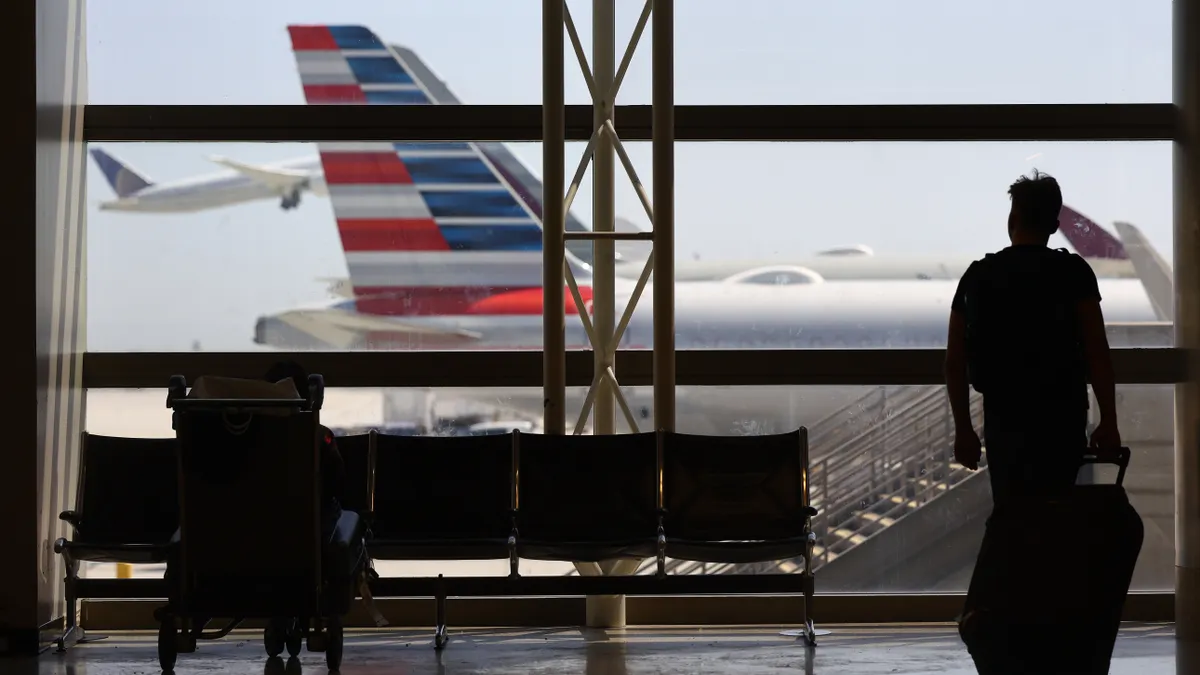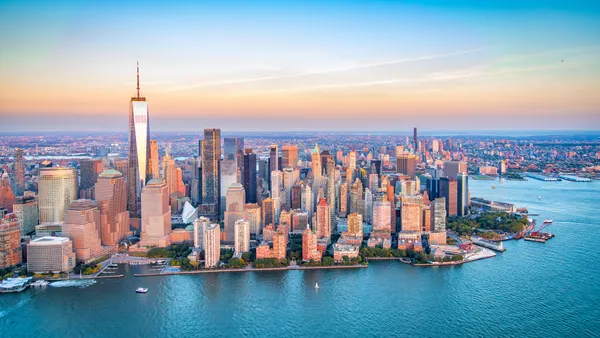Dive Brief:
- The U.S. is on track to lose $12.5 billion in international visitor spending in 2025 amid ongoing economic uncertainty, according to new findings published by the World Travel & Tourism Council.
- WTTC projects that international visitor spending to the U.S. will fall to just below $169 billion this year, down from $181 billion in 2024. This comes after “a sharp and widespread drop in inbound travel” to the U.S. in March from countries including the U.K. and Germany, per the organization.
- A lack of international traveler confidence, exacerbated by recent U.S. government actions under President Donald Trump, is driving the anticipated loss, according to WTTC CEO Julia Simpson. If not rectified, the “staggering” decline of inbound traveler spending could result in a downward economic impact that would take years to recoup, per WTTC. Recent shifts in travel demand are already pinching the U.S. hotel industry.
Dive Insight:
Lessened tourism’s forecast $12.5 billion hit to the U.S. economy should be “a wake-up call for the U.S. government,” according to Simpson.
“The world’s biggest Travel & Tourism economy is heading in the wrong direction, not because of a lack of demand, but because of a failure to act,” she said in a statement. “While other nations are rolling out the welcome mat, the U.S. government is putting up the ‘closed’ sign.”
In March, U.K. arrivals to the U.S. were down nearly 15% year over year, while visitation from Germany was down more than 28%, according to WTTC, citing the U.S. Department of Commerce. Other key markets such as Spain, Colombia, Ireland, Ecuador and the Dominican Republic saw double-digit drops in travel to the U.S. in March, between 24% and 33% year over year.
Looking ahead, early summer bookings from Canada are down by more than 20% compared to last year, per WTTC. According to the organization, fewer visitors coming to the U.S. from neighboring countries signals “the global appeal of the U.S. is slipping.”
In Q1 earnings, Las Vegas resort operators Caesars Entertainment and MGM Resorts International both reported a dip in Canadian guests.
Trump’s tariff policy, specifically, is slated to fuel economic uncertainty in the near term, curbing consumer purchasing power, Deloitte reported last month. For hotels, this could mean fewer guests overall, and lower returns, industry experts told Hotel Dive.
Marriott International, Hyatt Hotels, Choice Hotels International and Wyndham Hotels & Resorts downgraded their 2025 RevPAR expectations during Q1 earnings, citing economic uncertainty.
Without “urgent action” to restore international traveler confidence, WTTC’s Simpson said, “it could take several years for the U.S. just to return to pre-pandemic levels of international visitor spend, not even the peak from 10 years ago.”
Solely relying on domestic travelers may have “kept the lights on during the pandemic,” but now poses a significant risk, according to WTTC.
“This is about growth in the U.S. economy — it is doable, but it needs leadership from DC,” Simpson stated.












